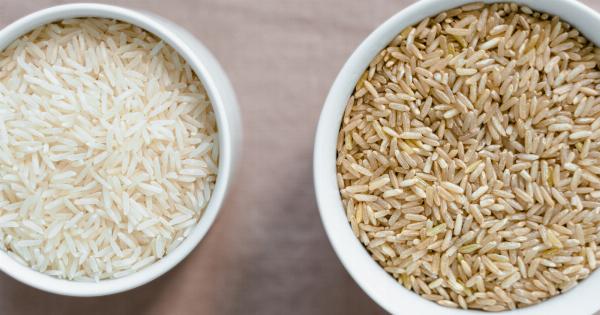Midsection discomfort is a common issue faced by many people. It can be caused by various factors, ranging from minor to severe conditions. This article discusses some of the common sources of midsection discomfort and their solutions.
Indigestion
Indigestion is a common digestive disorder that causes discomfort in your midsection. It is caused by the buildup of acid in the stomach, which can cause heartburn, bloating, and chest pain.
Indigestion can also be caused by overeating, consuming spicy or oily food, and drinking alcohol or carbonated drinks.
The solution to indigestion is to avoid overeating and consuming spicy or oily food. You can also take medication to relieve the symptoms of indigestion.
Antacids can help neutralize stomach acid to reduce the discomfort, while proton pump inhibitors (PPIs) can block the acid production that causes heartburn and indigestion.
Irritable Bowel Syndrome (IBS)
IBS is a common gastrointestinal disorder that affects the large intestine. The exact cause of IBS is unknown, but it is believed to be caused by a combination of factors, including genetics, stress, and diet.
IBS can cause abdominal pain, bloating, constipation, and diarrhea.
The solution to IBS is to manage your stress levels, eat a balanced diet, and avoid trigger foods. Keeping a food diary can help you identify the foods that trigger your symptoms.
You can also try taking probiotics, which are beneficial bacteria that live in your gut and can help improve digestive health.
Constipation
Constipation is a common condition that affects the digestive system. It occurs when there is difficulty in passing stools or when there is a decrease in the frequency of bowel movements.
Constipation can cause discomfort in the midsection, bloating, and abdominal pain.
The solution to constipation is to increase your fiber intake, drink plenty of fluids, and exercise regularly. You can also take laxatives to help loosen your stools and ease constipation.
Gallstones
Gallstones are small, hard deposits that form in the gallbladder. They are more common in women and people over 40 years old. Gallstones can cause midsection discomfort, nausea, and vomiting.
The solution to gallstones is to remove them surgically. If the gallstones are small, they can be removed using a nonsurgical procedure called endoscopic retrograde cholangiopancreatography (ERCP).
Pelvic Inflammatory Disease (PID)
PID is an infection of the female reproductive organs, including the uterus, ovaries, and fallopian tubes. It is caused by sexually transmitted infections (STIs), such as chlamydia and gonorrhea.
PID can cause midsection discomfort, lower back pain, and painful urination.
The solution to PID is to treat the underlying STI with antibiotics. It is also important to practice safe sex by using condoms and getting tested regularly for STIs.
Ulcerative colitis
Ulcerative colitis is a chronic inflammatory bowel disease that affects the colon and rectum. It can cause midsection discomfort, diarrhea, and rectal bleeding.
The exact cause of ulcerative colitis is unknown, but it is believed to be a combination of genetic and environmental factors.
The solution to ulcerative colitis is to manage the symptoms with medication, lifestyle changes, and surgery in severe cases.
Anti-inflammatory drugs can help reduce inflammation in the colon, while immunosuppressive drugs can help regulate the immune system. Surgery may be required to remove the colon in severe cases.
Appendicitis
Appendicitis is inflammation of the appendix, a small pouch attached to the large intestine. It can cause midsection discomfort, nausea, vomiting, and fever. Appendicitis is a medical emergency and requires immediate surgery.
The solution to appendicitis is surgical removal of the appendix. This is typically done as an emergency procedure and may require hospitalization and medication to manage pain and inflammation.
Lactose Intolerance
Lactose intolerance is a condition in which there is an inability to digest lactose, a sugar found in milk and dairy products. It can cause midsection discomfort, bloating, and diarrhea.
Lactose intolerance is caused by a deficiency of lactase, an enzyme that breaks down lactose in the body.
The solution to lactose intolerance is to avoid foods that contain lactose. You can replace dairy products with lactose-free alternatives, such as soy or almond milk, and take enzyme supplements to help break down lactose.
Diverticulitis
Diverticulitis is an inflammation of the diverticula, small, bulging pouches that form in the wall of the colon. It can cause midsection discomfort, fever, and vomiting. Diverticulitis is caused by the formation of diverticula due to a low-fiber diet.
The solution to diverticulitis is to eat a high-fiber diet to prevent the formation of diverticula. You can also take antibiotics to treat the infection and manage the symptoms of diverticulitis.
Conclusion
Midsection discomfort can be caused by various conditions, ranging from minor to severe. It is important to identify the cause of your discomfort to find the appropriate solution.
Lifestyle changes, medication, and surgery may be required depending on the severity of your condition.





























